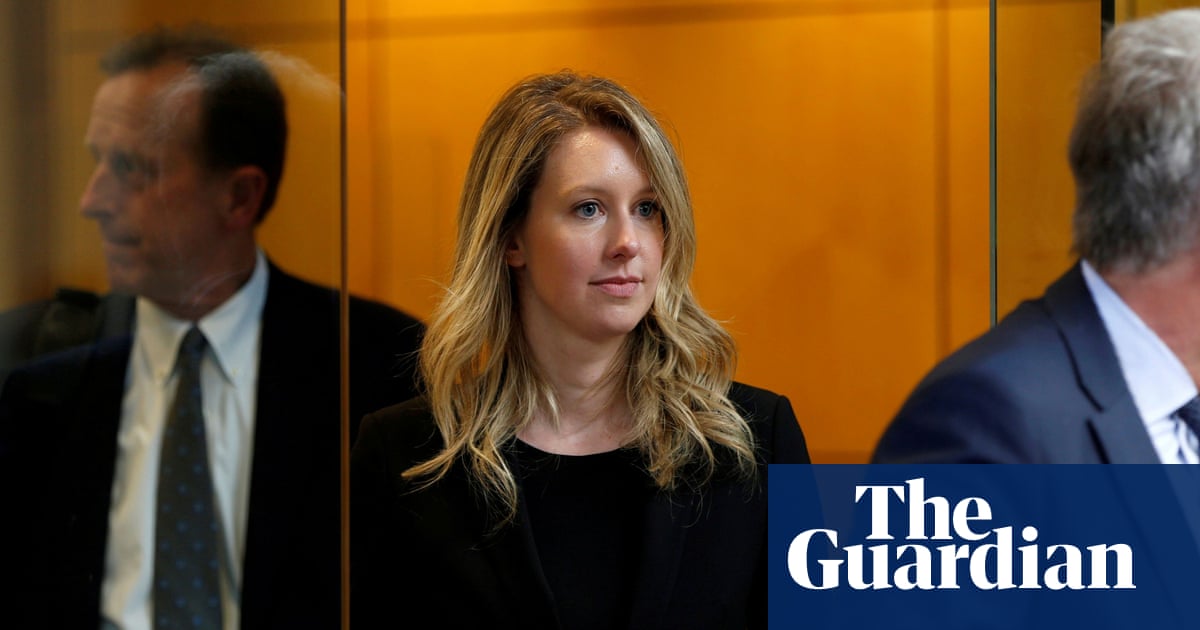Prosecutors are expected to question her statements that she believed her company’s technology to be more accurate than it was
Tue 30 Nov 2021 14.05 EST
Federal prosecutors began their aggressive cross-examination of the Theranos founder Elizabeth Holmes on Tuesday, in Silicon Valley’s highest-profile trial in decades.
Holmes entered the federal courthouse in San Jose, California, flanked by her partner, Billy Evans, and her mother for her fifth day on the stand fighting charges that she lied about the company’s core blood-testing technology. She faces 11 counts of fraud and up to 20 years in prison.
Assistant US attorney Robert Leach targeted Holmes’s assertions that she did not know about the failures of the company’s proprietary tests, zeroing in on methods she used to quash whistleblowers and investigations into the company.
Holmes previously testified she believed Theranos’s technology to be more accurate than it was due to successful early trials. She cited studies conducted by Schering-Plough (a pharmaceutical firm that later became Merck) and Pfizer, saying that at the time the numbers meant “our system was working well”.
Leach asked Holmes about her responses to reporting in the Wall Street Journal by John Carreyrou, which first revealed cracks in the shiny facade of the company, which had for years been a Silicon Valley darling.
Texts between Holmes and Balwani submitted into evidence showed how the CEO sought to suppress the Journal coverage of Theranos, hiring an external opposition research firm to thwart Carreyrou’s reporting.
Holmes expressed regret at her responses to the Theranos reporting as well as to whistleblowers like Erika Cheung, a former employee who previously testified during the trial that she was fired for raising issues with Theranos tests.
“I sure as hell wish we’d treated her differently and listened to her,” she said, adding later that Theranos “100% mishandled the entire process of the Wall Street Journal reporting”.
Tuesday marked the first day of cross-examination for Holmes. On Monday, she had tearfully alleged she was emotionally and physically abused by her former lover and business partner, Sunny Balwani. Balwani, who faces his own fraud trial in 2022, has strongly denied these accusations.
In previous testimony she also addressed the bombshell evidence introduced by the prosecution that she intentionally doctored documents to include logos of major pharmaceutical companies, which corporate partners took to mean they had endorsed Theranos technology.
Holmes said she did so not to imply that the companies had vetted the technology but “because this work was done in partnership with those companies and I was trying to convey that”.
“I wish I had done it differently,” Holmes told jurors.
Holmes was the third witness called by the defense after the prosecution spent 11 weeks presenting its case. Government attorneys called more than two dozen witnesses including former employees, investors and patients who testified that Theranos’s blood-testing devices did not work as advertised, returning inaccurate results.
Witnesses also said many blood tests were being carried out by external labs rather than on Theranos devices.
In opening arguments, Holmes’s defense attorney Lance Wade painted a picture of a hardworking young female executive caught up in the Silicon Valley culture that encourages entrepreneurs to push cutting-edge ideas.
“In the end, Theranos failed, and Ms Holmes walked away with nothing,” he said. “But failure is not a crime – trying your hardest and coming up short, is not a crime.”
{{topLeft}}
{{bottomLeft}}
{{topRight}}
{{bottomRight}}
{{/ticker}}
{{heading}}
{{#paragraphs}}
{{.}}
{{/paragraphs}}{{highlightedText}}
{{#choiceCards}}{{/choiceCards}}
